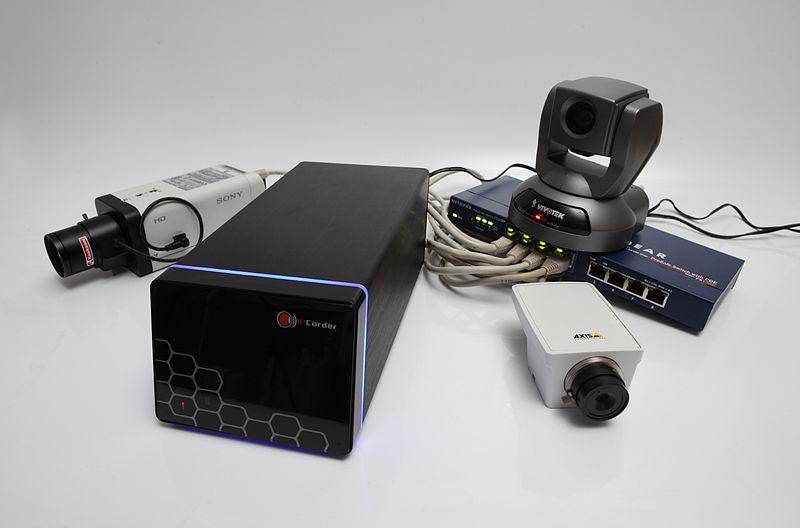Though common, DVR (digital video recorders) and NVR (network video recorders) systems are increasingly considered outdated technology, introducing unnecessary risks when used in modern surveillance systems.
While DVRs use coaxial cables to connect to surveillance cameras, their more modern counterparts, NVRs, connect to a business’ network through Ethernet or WiFi. NVRs have grown in popularity due to their IP capabilities and the higher recording quality. However, both systems are notoriously hackable, not truly designed for secure remote access, and susceptible to power outages and offline cameras. Verkada has mitigated these security risks with a hybrid solution that offers a revolutionary approach to enterprise security.
In an era where hackers have grown wise to attacking various “Internet of Things” devices, an NVR is a potential vulnerability. NVR and DVR technologies were popularized in the ‘90s and rely on outdated infrastructures. Air-gapped NVRs are typically secure, however they’re cut off from networks and are not accessible remotely or by smart devices. The work-arounds put in place to make these systems accessible also make them vulnerable to hackers.
Last year, researchers at Tenable, Inc. – a cyber exposure company – discovered a major software flaw (made by NUUO) called “Peekaboo.” This vulnerability gave cyber criminals complete control over certain CCTV cameras, allowing them to monitor, tamper with, and disable feeds.
“Our world runs on technology. It helps us monitor, control, and engage with each other and our environments. And it’s one of the many reasons we’ve seen a massive surge in connected devices recently,” said Renaud Deraison, co-founder and chief technology officer at Tenable. “The Peekaboo flaw is extremely concerning because it exploits the very technology we rely on to keep us safe. As more IoT devices are brought online, the attack-surface expands and introduces new risks to both consumers and organizations. Tenable Research is committed to reducing this Cyber Exposure gap by identifying new, potential attack vectors and arming customers with the insight they need to reduce their exposure.”
Verkada offers a safer option in their software-driven, hybrid-cloud approach. Verkada’s hybrid-cloud solution distributes storage across each camera and syncs media to the cloud, eliminating the single-point-of-failure risk of a traditional NVR/DVR.
Maintenance challenges can also be a driver for security gaps in NVR/DVR surveillance systems. IT and security managers frequently complain about how complicated it can be to update their company’s NVR system. Not only do the system’s different components have to be updated manually, but they are updated on individual schedules. When a business’ hardware and software are managed by separate third-party vendors, updates to one component may lead to incompatibilities with the other. These systems may even end up running on platforms with outdated systems like Windows 7 or even Windows XP — platforms which are no longer supported (updated/patched). By comparison, Verkada’s hybrid-cloud system offers a completely integrated solution that improves seamlessly and continually as the system is regularly upgraded.
Verkada’s solution also regularly undergoes penetration testing. Improvements are rolled out with automatic software and firmware updates, making them unparalleled in their security and eliminating the need for IT staff to perform maintenance on the system themselves. This means that companies are significantly less likely to have holes in their security system from missed upgrades or undiscovered flaws. Verkada’s cameras also use advanced end-to-end encryption and only allow outbound connections when they do perform updates, further reducing the risk of unauthorized access.
Hybrid-cloud surveillance systems are also much easier to manage at-scale, particularly when it comes to the bandwidth limitations of different networks. Traditional cloud/IP cameras can be costly at 1-2 mbps, and those costs can be amplified as more users attempt to access a feed. By multiplexing streams on the cloud, Verkada offers unlimited users the ability to watch the same live stream without increasing the individual camera’s uplink consumption. This means that no matter how many viewers are monitoring a stream, bandwidth costs don’t increase.
From issues with effectively rolling out patches to concerns with scalability and hidden costs, enterprise-level organizations should take pause before making new investments or continuing to use legacy NVR-inclusive technology. Modern hybrid-cloud solutions like those offered by Verkada provide end-to-end cyber security, remote access, and built in analytics that help companies meet not only their physical security needs, but also improve operational efficiency.

